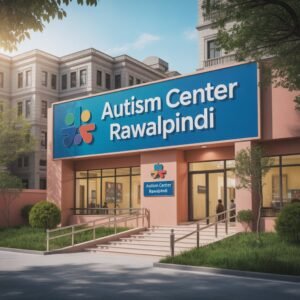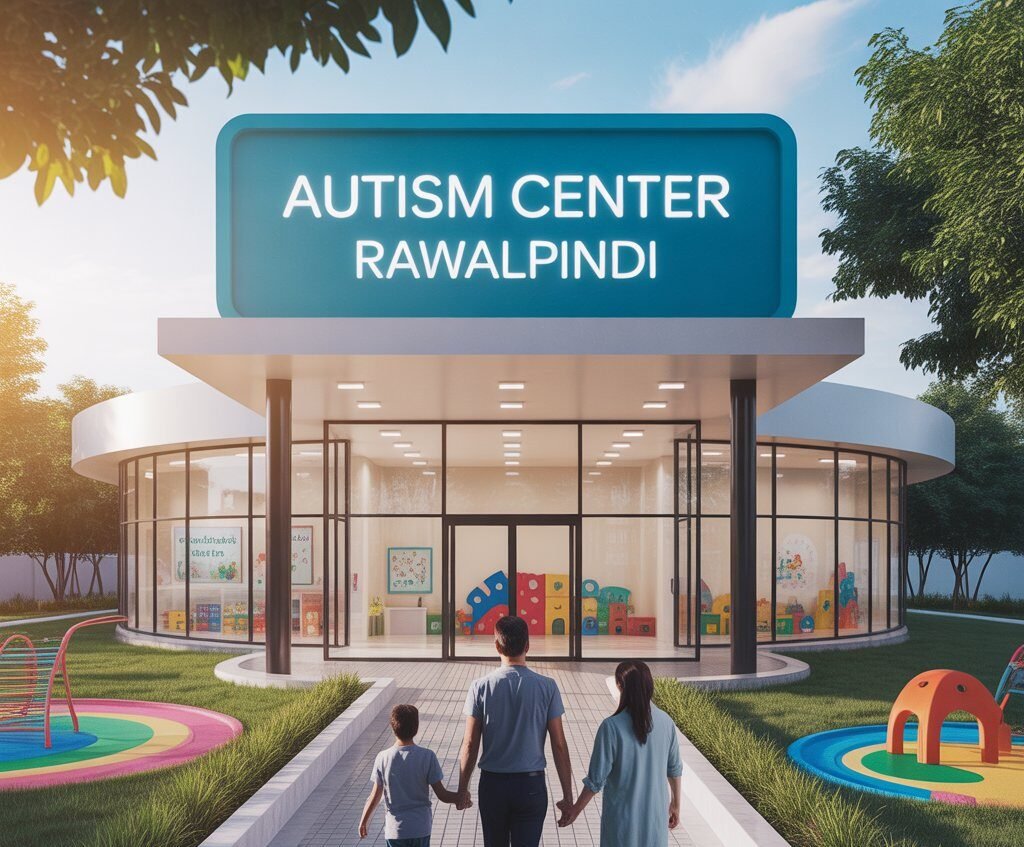Navigating the journey of autism can feel overwhelming for families. You want the very best for your child, but finding the right support system is crucial. For parents in Rawalpindi and Islamabad, discovering a dedicated Autism Center Rawalpindi can be the first, most significant step toward unlocking their child’s potential. These centers are not just facilities; they are ecosystems of hope, expertise, and unwavering support designed to address the unique needs of each child.
Understanding autism’s spectrum is the first step toward effective intervention. Autism Spectrum Disorder (ASD) influences how a person communicates, interacts, behaves, and learns. Because it is a spectrum, its presentation varies greatly from one individual to another. Some children may have significant speech delays, while others might struggle with social cues or sensory processing. Consequently, a one-size-fits-all approach is never effective. This is precisely why the specialized, multidisciplinary model of a professional Autism Center Rawalpindi is so vital.
Understanding the Multidisciplinary Approach to Autism Care
A leading Autism Center Rawalpindi distinguishes itself through a collaborative, team-based framework. Instead of offering isolated therapies, these centers integrate various disciplines to create a unified and powerful treatment plan. This holistic strategy ensures that progress in one area positively influences development in another.
The core team at a comprehensive center typically includes:
- Board-Certified Behavior Analysts (BCBAs):These professionals conduct detailed assessments to understand the function of behaviors and learning styles. They design and oversee individualized Applied Behavior Analysis (ABA) programs, which are evidence-based and highly effective for teaching new skills and reducing challenging behaviors.
- Speech-Language Pathologists (SLPs):Communication challenges are a core aspect of autism for many children. SLPs work tirelessly to build verbal skills, enhance non-verbal communication, and develop social pragmatics. They also address crucial feeding and swallowing difficulties. For non-verbal individuals, they specialize in implementing Augmentative and Alternative Communication (AAC) devices.
- Occupational Therapists (OTs):Sensory processing differences are common in autism. OTs help children manage their responses to sensory input like sound, touch, and light. They also focus on developing essential life skills, known as Activities of Daily Living (ADLs). These include dressing, eating, and fine motor skills like writing.
- Special Education Teachers:These educators are trained in specialized instructional techniques. They break down academic and pre-academic goals into manageable steps, ensuring learning is accessible, engaging, and tailored to the child’s pace.
The Critical Role of Early Intervention Services
Research consistently shows that early intervention leads to the most positive long-term outcomes. The brain’s remarkable plasticity during the early years means that targeted therapies can have a profound impact. An Autism Center Rawalpindi with a strong early intervention program is invaluable.
These programs are typically designed for children under the age of six. They focus on building foundational skills in several key areas:
- Communication and Language:Developing first words, expanding vocabulary, and fostering the desire to communicate.
- Social Interaction:Teaching skills like joint attention, sharing, taking turns, and recognizing emotions in others.
- Behavioral Regulation:Helping children learn to cope with frustration and transition between activities without distress.
- Cognitive and Play Skills:Moving beyond repetitive play to more imaginative and functional play, which is the foundation for learning.
Enrolling a child in early intervention provides them with the essential tools they need before entering a more structured school environment. As a result, children are often better prepared to integrate and succeed.
What to Look for When Choosing the Right Center
Selecting a center is a deeply personal and important decision for any family. Therefore, it is essential to be thorough in your evaluation. Here are key factors to consider during your search:
- Individualized Plans:Ensure the center creates a unique intervention plan for every child, based on a formal assessment of their strengths and challenges.
- Qualified Staff:Inquire about the credentials and experience of the clinical team, including BCBAs, SLPs, and OTs.
- Parental Involvement:A quality center will actively train and involve parents in the therapy process. After all, you are your child’s first and most important teacher.
- The Learning Environment:Visit the center personally. Observe whether the atmosphere feels warm, supportive, and structured. Look for visual schedules, organized work stations, and evidence of a positive reinforcement system.
- Transparent Communication:Choose a center that prioritizes open communication through regular progress meetings and detailed reports.
Building a Supportive Community for Families
Beyond the direct therapies, a premier Autism Center Rawalpindi serves as a vital community hub. It connects families who are on similar journeys, reducing feelings of isolation and providing a network of mutual support. Many centers offer parent training workshops, support groups, and sibling events.
Furthermore, this community connection empowers parents with knowledge and resources. They learn effective strategies to support their child’s development at home and in the community. Ultimately, a strong support system benefits the entire family, fostering resilience and hope.

Taking the Next Step Toward Growth and Development
The path with autism is unique for every child and family. However, it is a path filled with potential for growth, connection, and joy. By partnering with a dedicated and professional center, you are not seeking a cure; you are providing your child with the keys to unlock their own unique abilities.
A commitment to early, intensive, and holistic intervention can make a world of difference. It can help a child find their voice, build friendships, and navigate the world with greater confidence. If you are looking for support in Rawalpindi, reaching out to a specialized autism center is the most powerful first step you can take. It is a decision to invest in your child’s future, celebrating every milestone along the way.
Frequently Asked Questions (FAQs)
-
What is the ideal age to start therapy at an Autism Center in Rawalpindi?
While support is beneficial at any age, research shows that early intervention, typically for children under six years old, leads to the most positive long-term outcomes. The brain’s high plasticity during these early years allows targeted therapies to have a profound impact on developing communication, social, and behavioral skills.
-
How is the therapy plan created for my child?
A professional Autism Center in Rawalpindi does not use a one-size-fits-all approach. Upon enrollment, your child will undergo a comprehensive assessment by a multidisciplinary team. Based on the results, a completely unique and individualized intervention plan is created, targeting their specific strengths, challenges, and learning style.
-
What is the role of parents in the therapy process?
Parental involvement is considered crucial. A quality center will actively train and empower you with strategies to support your child’s development at home. You are seen as an essential partner in the therapy process, ensuring consistency and reinforcing learned skills beyond the clinical setting.
-
My child is non-verbal. What kind of communication support can you provide?
This is a common and key focus area. Speech-Language Pathologists at the center specialize in building communication skills for non-verbal children. They are experts in implementing Augmentative and Alternative Communication (AAC) devices and methods, helping your child find their voice and express their wants and needs effectively.
-
What should I look for when I first visit an Autism Center?
During your visit, observe the environment to ensure it feels warm, supportive, and structured. Look for visual schedules and organized work stations. Most importantly, ask about staff qualifications, the center’s approach to creating individualized plans, and how they facilitate transparent communication with parents through regular progress meetings.


